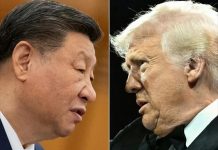BANGKOK, July 13 – Prime minister-to-be Yingluck Shinawatra on Wednesday said she welcomes opinions and comments from the business community on her Pheu Thai Party campaign pledge to increase Thailand’s minimum wage to Bt300 per day as discussion on pros and cons was needed before implementation.
The private sector aired its disagreement with the planned daily minimum wage, branding it as only political campaign ploy to win votes from the electorate.
Ms Yingluck said all opinions and comments were welcome as her Pheu Thai Party is willing to discuss the matter with all stakeholders.

“Pheu Thai is not rushing to increase the daily minimum wage without thinking about the negative impact and damages that may arise,” she said, referring to the consequences of such an action. “I am confident that the issue can be discussed.”
Asked whether she is concerned that the plan to increase the minimum wage might not be put into practice, Ms Yingluck said, “As long as there is a will to do so, (we) must clarify to make it clear to the public.”
Thailand’s election-winning Pheu Thai Party announced after the July 3 election that it expects to raise the daily minimum wage for workers nationwide to Bt300 (US$10) as early as January next year and a minimum starting salary for university graduates of Bt15,000 (US$500) per month, as promised in its election campaign.
Meanwhile, Buri Ram Chamber of Commerce Chairman Weeradet Tangtrongwetchakit urged the new government to review the plan as it could negatively impact companies and other employers, making them eventually unable to afford employing workers and would be forced to reduce their number.
This would lead to unemployment, he said, adding that the increase of minimum wage should be done gradually, step by step, not leapfrogging in one action.
The government, on the other hand, should provide measures to support both employers and employees, he said.
An owner of a textile factory in Kalasin, Suk Yubomchu, said he wanted government to come up with measures to help enterpreneurs as higher wage could mean higher production costs which would burden them.
“If the government cannot help entrepreneurs, they then would be forced to close their factories,” he said.




